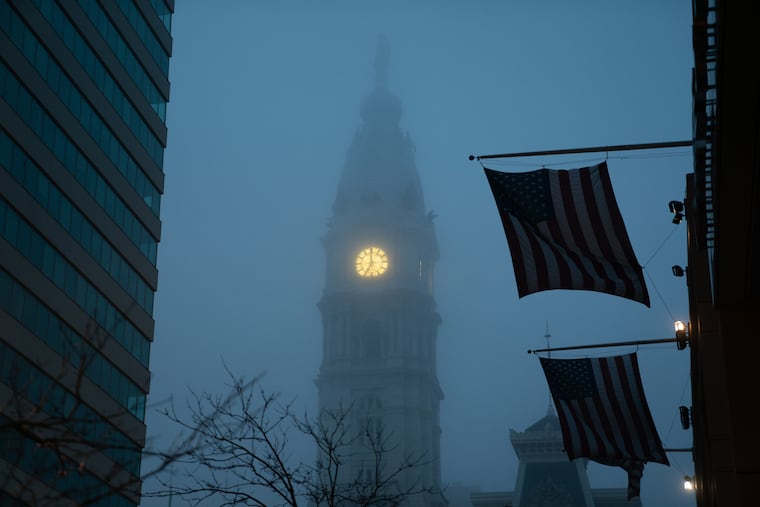Philly’s coronavirus budget hole grows by $100 million, and could lead to service cuts or tax hikes
A majority of the revised projections is due to worse-than-expected declines in the realty transfer and sales taxes. While the city is only legally required to pass a balanced budget, meaning it could leave no fund balance, government finance experts caution against leaving no cushion.

The hole in the city budget caused by the economic downturn resulting from the coronavirus pandemic will be $100 million deeper than expected and could require new tax increases or service cuts, Mayor Jim Kenney’s administration announced Monday.
The revised projection is primarily due to worse-than-expected declines in the realty transfer and sales taxes, Budget Director Marisa Waxman said. The administration now expects the virus will cost the city $749 million in lost tax collections during the fiscal year beginning July 1, the deadline for Kenney and City Council to enact a budget.
“This just makes it harder for us to do a number of things that the people of Philadelphia have told us that they want to see,” said Jim Engler, Kenney’s chief of staff.
The revised revenue estimate decreases the legal limit for how much money can be spent in next year’s budget, but the administration did not publicly reveal how it would prefer to make up the difference. Engler said the administration is in talks with Council members over how to plug the hole, either through additional cuts or new tax or fee increases. The city is also lobbying the federal government for additional aid, he said.
The new belt-tightening plan will include savings from changes to the Philadelphia Police Department budget. Kenney last week said that in light of the protests sparked by George Floyd’s death, the administration would abandon its proposal to increase the department’s budget by $19 million for the coming year.
Some Council members have called for cuts to the department, not just a freeze in its budget. Kenney, however, has said he hopes to avoid funding reductions that would require police officers or firefighters to be laid off.
The administration has previously said it plans to lay off about 400 other workers, a mix of part-time and full-time employees.
The second revision to the city’s projections for how much money it will collect next year came after watching some taxes generate less revenue in recent months than had been expected after the administration in May began planning for cuts due to the pandemic.
“As we watched the collections come in, the activity was even less than our downwardly revised estimate was projecting,” Waxman said.
City revenue from the realty transfer tax is now projected to produce $25 million less this year than the administration estimated in May. Philadelphia collects 3.278% of the value of every property sold in the city, while the state applies a separate 1% levy.
The sales tax is also falling behind expectations, and the city now projects taking in $32 million less from it this year. The city applies a 2% levy to taxable purchases, while an additional 6% goes to the state.
The $100 million revision does not mean the city will have to find that exact amount in additional cuts or tax increases. The administration’s most recent projection for next year’s budget plan included an $87 million fund balance, which is the amount of money appropriators leave unspent.
While the city is only legally required to pass a balanced budget, meaning it could leave no fund balance, government finance experts caution against leaving no cushion. The Government Finance Officers Association, for instance, recommends cities leave 17% of their project revenues unspent to provide a safety net for unexpected expenses or revenue shortfalls, both of which are possible next year given the unpredictable impact the pandemic continues to have on the economy.
Kenney’s first budget proposal for next year, delivered to Council in early March just before the pandemic took hold in Philadelphia, included a $316 million fund balance, which would have amounted to 6% of spending. The $5.2 billion plan had no tax increases and proposed new funding for programs, including street sweeping and Community College of Philadelphia scholarships.
After the pandemic forced him to shut down all but essential businesses and government services on March 16, revenues began to plummet, and Kenney on May 1 unveiled a new $4.9 billion plan addressing the then-$649 million projected budget hole by tapping reserves; eliminating funding for some arts programs; and increasing levies such as the wage tax for suburban commuters and the portion of the real estate tax that funds the School District.
After Council members objected to the proposed real estate tax hike, Kenney abandoned that plan, saying recently approved state funding for schools made the increase unnecessary. The administration is still pursuing hikes in the nonresident wage tax and the parking tax.